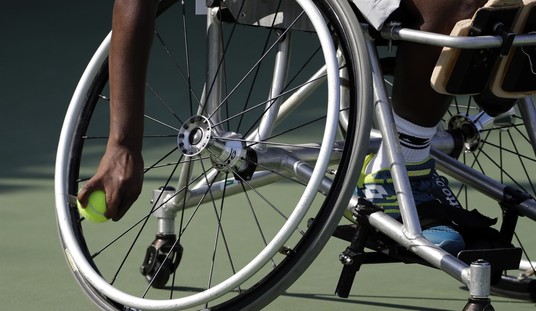If a picture is worth a thousand words the map above, the two above, the first taken from the College Conservative website and the second from the Washington Post must speak volumes. Both maps show al-Qaeda potentially operating across a huge swatch of the Sahara, essentially the hinterland behind the North African coast. That’s just the half of it; radical Islam is in fact operating in North Africa itself — in Tunisia, Egypt and Libya where US consulates were attacked — across the Levant in Lebanon and Syria, in the Arabian Peninsula, and now poised to affect the Caucasus and Turkey.
Africa, so long dormant in the Western public narrative, has come suddenly to the fore.
It’s been a long time coming.
The concern over Mali had been publicly building since Oct, 2012. The Washington Post wrote “The White House has held a series of secret meetings in recent months to examine the threat posed by al-Qaeda’s franchise in North Africa and consider for the first time whether to prepare for unilateral strikes, U.S. officials said.”
The deliberations reflect concern that al-Qaeda’s African affiliate has become more dangerous since gaining control of large pockets of territory in Mali and acquiring weapons from post-revolution Libya. The discussions predate the Sept. 11 attacks on U.S. compounds in Libya but gained urgency after the assaults there were linked to al-Qaeda in the Islamic Maghreb, or AQIM.
In early March the the Islamists were working their way down the Niger River towards Mopti, as shown on the map below. By the time the French intervention was announced yesterday the Malian government was fighting for Bamako, it’s back to the wall.
The French were probably aiming to keep open airfields which the Islamists threatened to overrun. Since the entire theater is largely landlocked and covers vast distances, once the French lost access to airbases in the area it would have faced severe difficulties doing anything thereafter. Although the Obama administration and the UN have been making noises about supporting an interventionary force in the near future, France apparently could not wait. The Independent explains how bad things had become for what was left of the Malian government.
The Islamists were this week able to capture Konna, a town about 350 miles from the capital Bamako that was the forward base of the Malian army. Government forces have now retreated to Sevare in the central Mali area of Mopti where they were being supported by French special forces. Residents of Mopti said that troops from the former colonial power had arrived at an airstrip nearby. Military analysts said the Mopti airstrip was the likely target of the rebel advance as its capture or destruction would complicate the use air power against them.
For months France has been trying to coax the UN and Mali’s neighbours into a military campaign to reconquer the north. The UN Security Council passed a resolution late last year approving a foreign intervention but its deployment was not expected before September. The plan has been attacked as unrealistic by US military officials as it called for 3,000 troops to hold an area the size of Texas and to be led by Malian forces who have consistently lost out to the well-armed and motivated rebels. However, the sudden loss of further territory may now bring that operation forward.
The Washington Post captures some of the sense of panic. “Many believe that if Mopti were to fall, the Islamists could potentially seize the rest of the country, dramatically raising the stakes in the nearly year-old conflict. On Saturday, French Defense Minister Jean-Yves Le Drian described the potential outcome as ‘a terrorist state at the doorstep of France and Europe.'” Another roundup captures the sudden awakening of the press:
NYT: “Mali Government Is Left Reeling After Islamists Take Village Long Held by Army.” The village in question is Konna (more on the conquest of Konna from France24 here). NYT adds, “The Islamists now threaten a major airfield some 25 miles away at the town of Sévaré, which is also the home of a significant army base. And 10 miles from Sévaré is the historic river city of Mopti, the last major town [i.e., in this area] controlled by the Malian government, with a population of more than 100,000.” Information from different sources is still highly confusing and contradictory at times; for example, NYT describes Konna as “a sleepy mud-brick village,” while France24 calls it “a city of 50,000 people.”
Al Jazeera: “UN urges swift deployment of troops to Mali”
AP: “President Francois Hollande said Friday that France will be ready to intervene to stop al-Qaida-linked militants in Mali who have been moving toward its capital.” According to Sahara Medias (Arabic), four planes carrying French special forces arrived in Sevare from Chad on Thursday night. More here.
Reuters: “France, Nigeria and Senegal are already providing Malian government forces with assistance on the ground against Islamist insurgents, a defense ministry spokesman said on Friday.”
A long time coming, and probably a long time before its gone.
The entire Middle Eastern and African theater has been left without sufficient forces to cover it. The French have only a handful of brigades in Africa and very limited capability to operate over such vast distances. Nor is American help forthcoming. President Obama in his wisdom, determined that the “war of necessity” should be in Southwest Asia put American troops in landlocked Afghanistan. American troops are now being pulled out of Afghanistan at an accelerated pace but between the cuts in military budgets and the souring political attitudes at home it is doubtful France can look to much help from Washington.
But that does not change the fact that the needs in the Middle East/North Africa theater are increasing daily. Ironically, developments in Mali were accelerated by events from the “Arab Spring”. In the pivotal March time period, the Wall Street Journal reported Libya Spillover Leads to Mali Coup — “Disgruntled junior officers overthrew the democratically elected government of Mali amid anger over the president’s failure to adequately provision the army to fight separatists flowing back from Libya.” The EU Observer added in the same time period:
Gilles Yabi, a Senegal-based analyst for the think tank, the International Crisis Group (ICG), told this website: “There’s a direct connection between the situation in Mali and the fall of Gaddafi. Libya’s borders have not been controlled at all and the flow of weapons out of Libya have not been controlled at all.”
The ICG says the Mali coup is a “disaster” because it will help the Touaregs, as well as Al-Qaeda in the Islamic Maghreb (AQIM) – an Islamist insurgent force also in north Mali – to establish power bases. The EU’s counter-terrorism supremo, Gilles de Kerchove, has frequently described AQIM as a prominent threat to European security.
And here we were thinking that Osama bin Laden was dead and General Motors was alive. Apparently the situation is more nuanced than that political slogan. But to the casual observer things look like this: North Africa and the Sahel have been destabilized across the whole width of the continent. Egypt is in Muslim Brotherhood hands. Syria is blowing up good, with its chemical weapons possibly up for grabs. Turkey is now a front-line state. The Hezbollah are still in Lebanon. American forces are trapped in Afghanistan. The US military has been cut to the bone. And John Kerry, Chuck Hagel and John Brennan head the American security team.
Thank God they know what they’re doing. Brennan recently spoke about the Big Picture.
Speaking Friday at the Institute of Institutional and European Affairs in Dublin, Ireland, John Brennan, President Obama’s assistant national security adviser for homeland security and counter-terrorism put al Qaeda’s terrorism in perspective by comparing it to what he called the “long and painful history of violent extremism” in the United States and Europe….
“On both sides of the Atlantic, we have a long, painful history of violent extremism, from violent anarchists to violent white supremacists to neo-Nazis.
“This summer, we saw a white supremacist in Wisconsin kill six worshippers and wound four others at a Sikh temple,” Brennan said. “Last year in Norway, we saw Anders Breivik—steeped in a racist and xenophobic ideology—murder 77 innocent men, women and children in a tragedy that truly shocked the world.”…
He then warned that the West should not “stigmatize” Muslims who are “fellow citizens.”
“The bottom line—on both sides of the Atlantic—is that we have to work with communities rather than stigmatize them,” Brennan said. “That is especially true when it comes to our fellow citizens who are Muslim.
That’s telling them: what we really have to worry about are neo-Nazis. Let’s not forget the threat posed by Global Warming and trans-fat foods either. Ironically Brennan may be right. Europe is facing a year of crisis. Greece, Spain and the rest of the continent remain mired in the economic doldrums.
Robert Haddick writing late in 2012 in Foreign Policy notes that policymakers always seem to be surprised by the retrospectively obvious. Part of the reason, he believes, is that discussion at the top tends to be extraordinarily narrow. “Intelligence analysis deals in probability estimates of future events and solving puzzles to avert surprise. Policymakers by contrast are often focused on today’s crisis and want a ‘straight answer’ to their questions, not a probability distribution. ”
Administrations which suppress internal debate; which conceal the facts about events — like Benghazi — from any but a tight circle eventually shackle themselves into a tiny intellectual room where little, if any sunshine leaks in. The biggest price the Obama administration will pay for its top heavy leadership style centered around the One is that it has opened itself to the dangers of strategic surprise in an extraordinary degree. An Emperor surrounded by second raters, does not as some might think, equal decisive leadership. It equals myopia.
The Three Conjectures at Amazon Kindle for $1.99
Storming the Castle at Amazon Kindle for $3.99












Join the conversation as a VIP Member